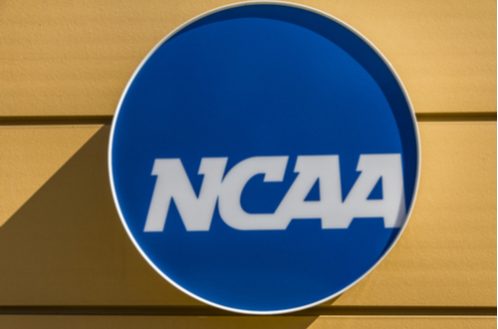
In a landmark decision for college sports, three athletes have made an argument in front of a California federal court that college athletes should be allowed to sue for the lack of NIL opportunities prior to 2021.
Grant House, a swimmer from Arizona State, TCU basketball player Sedona Prince, and former Illinois football player Tymir Oliver are claiming that the NCAA, member schools, and the Power Five conferences are in violation of federal antitrust law for the denial of NIL opportunities until 2021 and for refusing to give athletes a share of broadcasting revenue (BNIL).
The attorneys of the three athletes, Steve Berman, Jeffrey Kessler and their legal team, have asked the court to certify the proposed classes for In Re College Athlete NIL Litigation. They have argued for classes for football and men’s basketball players, women’s basketball players, players in other sports starting in 2016 and all D1 athletes who competed or will compete from June 15, 2020.
The attorneys for House, Prince, and Oliver have stated: “They claim they’ve presented realistic methodologies to demonstrate class-wide injuries.” They believe that if the athletes can sue via classes and win their trial, they might be awarded hundreds of millions or even billions of dollars in collective damages.
Related: Kentucky Senator Rand Paul Is Opposed To New Antitrust Laws In College Sports
The NCAA and the Power Five conferences have defended their argument in what they consider a 50-page brief. They claim that college athletes have very different NIL values and therefore should not be grouped together for NIL purposes. Their counsel stated: “The defendants also insist it’s ‘impossible’ to determine which athletes would be in the classes since if college athletes could have earned NIL or BNIL, some would have stayed in school longer and displaced others who held those roster slots.”
In reply, the legal team for the players maintained that available facts ‘overwhelmingly demonstrate’ that Electronic Arts would have published a college football game if the NCAA had not prohibited players from earning NIL as a condition of their eligibility. The attorneys also believe that all scholarship Power Five football and basketball players “would have received BNIL compensation … regardless of whether they actually appear in telecasts” because that is how TV deals for team sports generally work.
The legal team for the players also refuted the NCAA’s argument that it’s impossible to know which players are in a class since some would have remained in school longer: “They maintain ‘the data show that college athletes’ receipt of additional compensation (full-COA scholarships, Alston payments, and other enhanced benefits) has not resulted in a marked increase in the number of athletes choosing to stay in school rather than turn professional.'” They also contend Power Five schools ‘had sufficient open scholarship slots’ to ‘absorb’ players who might have stuck around without many teammates losing coveted Power Five roster slots.
At the time of writing, Judge Claudia Wilken is in the process of deciding whether to approve the classes proposed for In Re College Athlete NIL Litigation. Her decision could set a precedent for athletes nationwide, allowing them to sue for NIL rights. The current trial is scheduled for Jan. 27, 2025.
Source: Sportico
Featured News
Big Tech Braces for Potential Changes Under a Second Trump Presidency
Nov 6, 2024 by
CPI
Trump’s Potential Shift in US Antitrust Policy Raises Questions for Big Tech and Mergers
Nov 6, 2024 by
CPI
EU Set to Fine Apple in First Major Enforcement of Digital Markets Act
Nov 5, 2024 by
CPI
Six Indicted in Federal Bid-Rigging Schemes Involving Government IT Contracts
Nov 5, 2024 by
CPI
Ireland Secures First €3 Billion Apple Tax Payment, Boosting Exchequer Funds
Nov 5, 2024 by
CPI
Antitrust Mix by CPI
Antitrust Chronicle® – Remedies Revisited
Oct 30, 2024 by
CPI
Fixing the Fix: Updating Policy on Merger Remedies
Oct 30, 2024 by
CPI
Methodology Matters: The 2017 FTC Remedies Study
Oct 30, 2024 by
CPI
U.S. v. AT&T: Five Lessons for Vertical Merger Enforcement
Oct 30, 2024 by
CPI
The Search for Antitrust Remedies in Tech Leads Beyond Antitrust
Oct 30, 2024 by
CPI